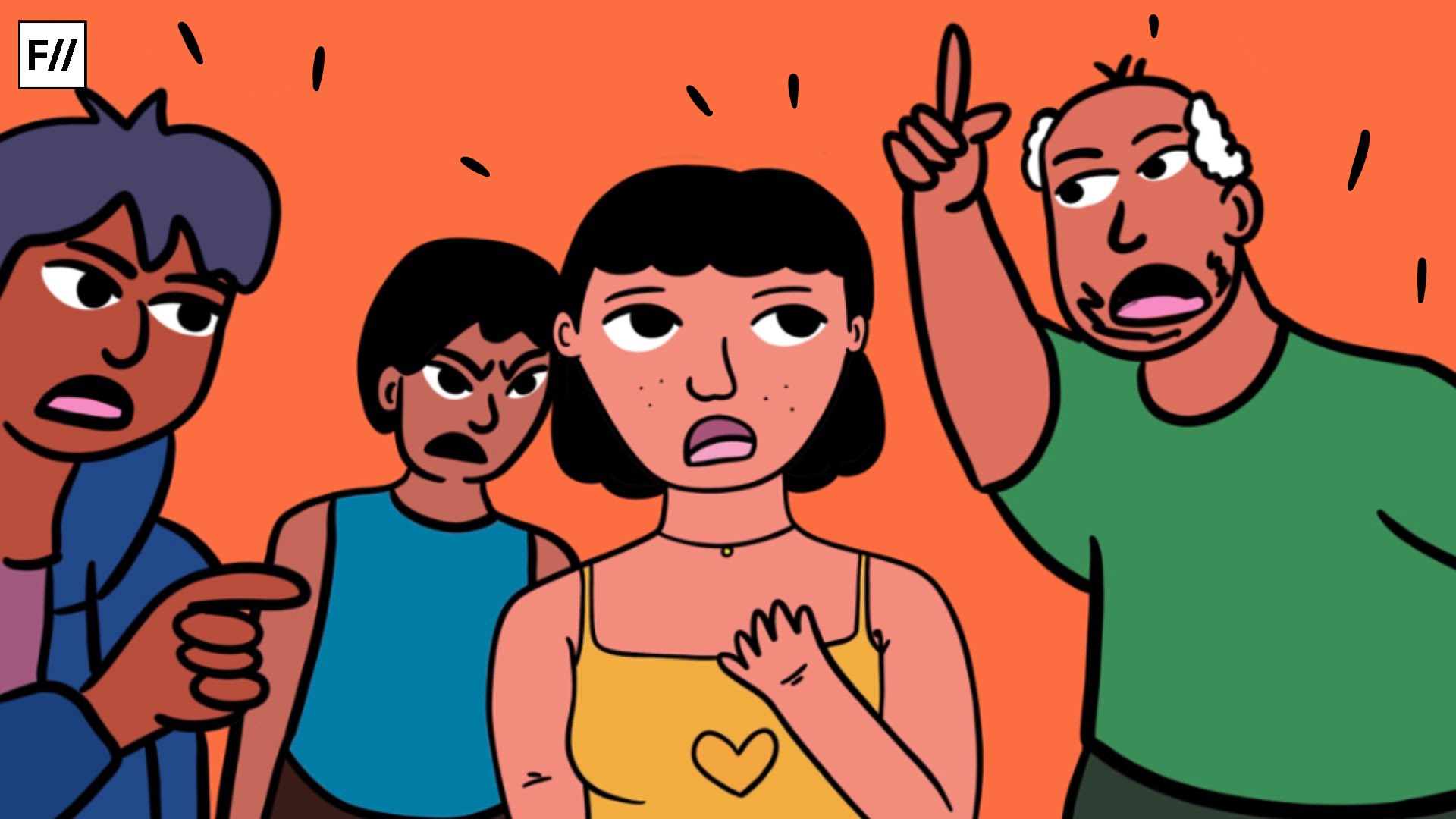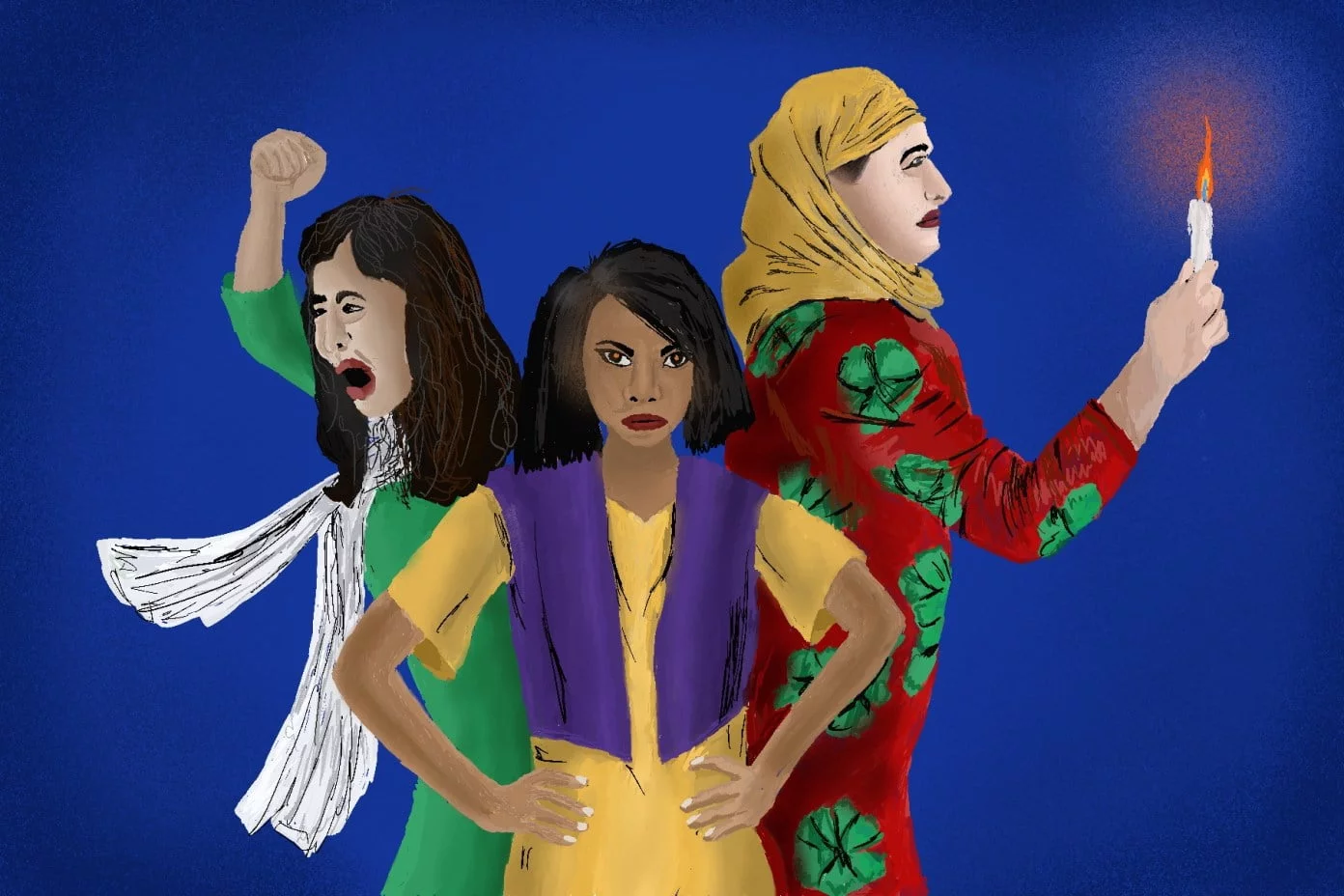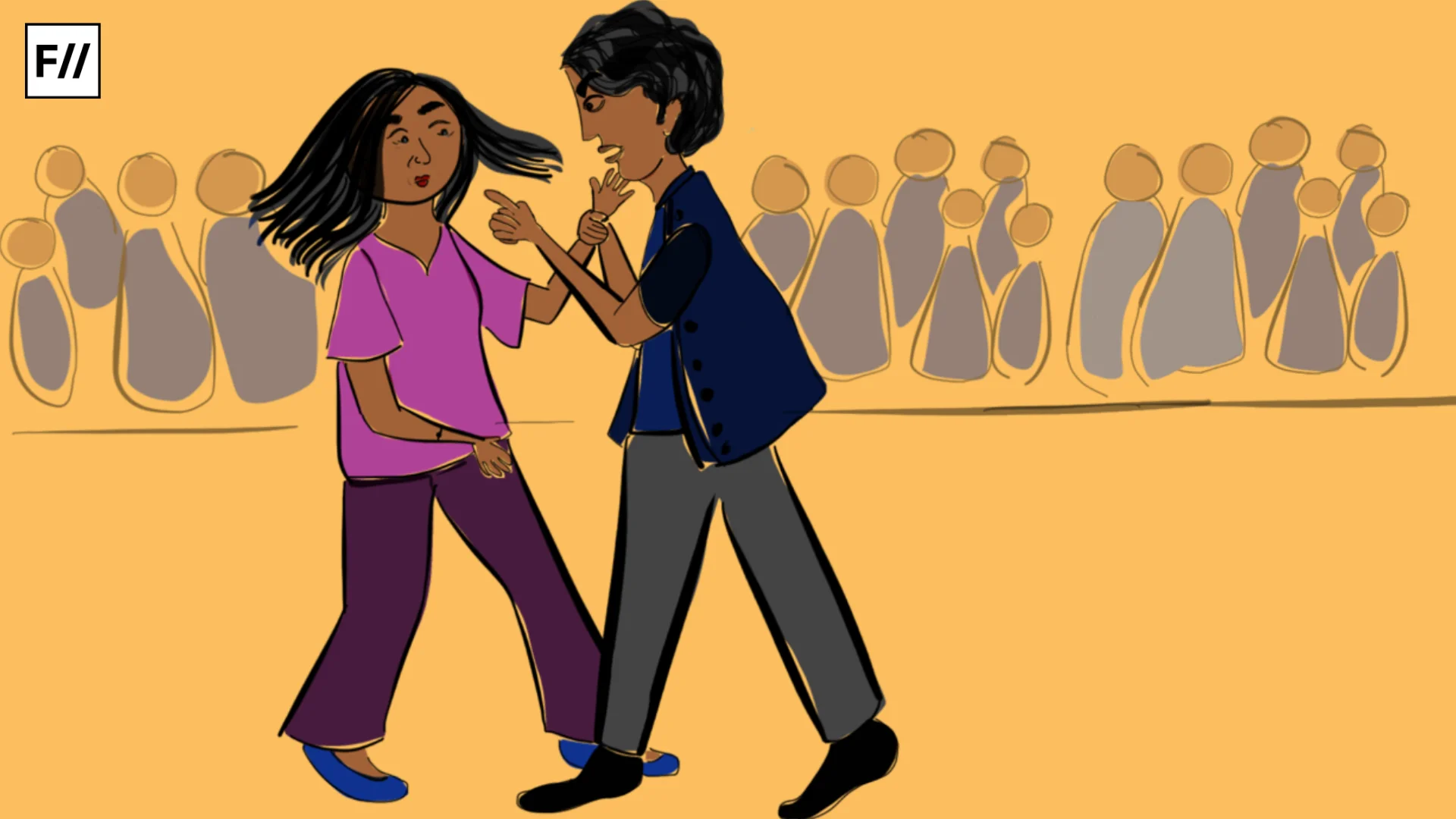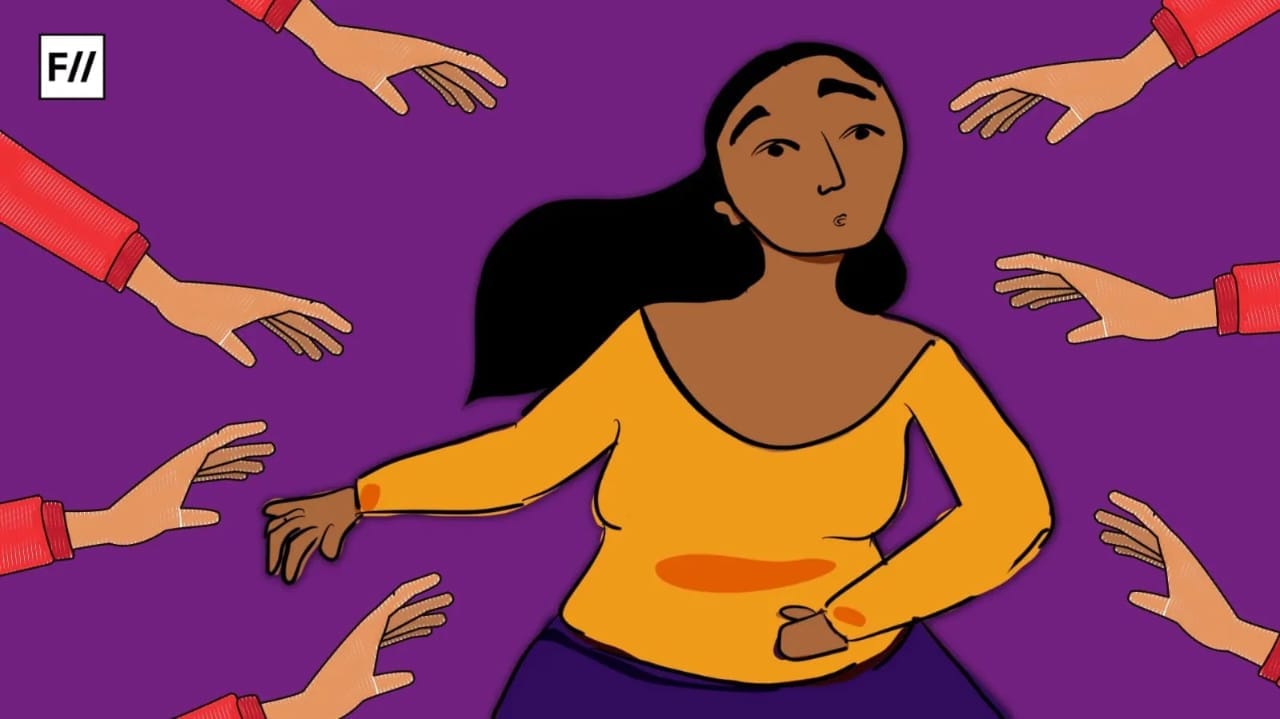According to a recent research study Gender Discriminatory Practices rooted in patriarchal sexist beliefs worsen the situation of violence against women. Performed on Indian Adults, the study was done by academics from the UK, US, and New Zealand and published in Psychological Science, a top Psychology Empirical Journal, and the US-based Flagship Journal for Psychological Science. The study indicates that the generic belief of men protecting women as a solution to violence against women can even worsen the status of women in the country. This kind of belief can do way more harm to women than good.
The study indicates that the generic belief of men protecting women as a solution to violence against women can even worsen the status of women in the country.
This research titled, Ambivalent Sexism And Tolerance Of Violence Against Women In India examines stark associations between sexist beliefs and the tolerance of violence against women. It uses the Ambivalent Sexism Theory and understands this through Benevolent and Hostile Sexism as categorisations to understand gender discriminatory practices and violence against women.
Patriarchal beliefs foster tolerance of violence against women
According to American Psychologists, Peter Glick and Susan Fiske (1996,2001) who coined these terms which today are well known as Ambivalent Sexism Theory, sexism is a multidimensional social construct that has two sets of sexist attitudes: hostile and benevolent. While hostile sexism is visibly evident, benevolent sexism takes the form of what you would call a seemingly positive attitude but is rooted in patronising beliefs disguised as acts of good intentions committed towards women.

Hostile sexism comprises overtly negative beliefs about women, characterising them as manipulative, power-hungry, and over-sensitive. Such kind of sexism could simply also ostracise an ambitious career-oriented woman as “selfish” and “too bossy”. Benevolent sexism is viewed as very subtle and rooted in compliments at times.
It restricts women’s roles to mere objects, pleasant to look at, not valuing their other qualities apart from their beauty or merely subjugating their role as caregivers and nurturers. This kind of sexism presents a highly idealised view of women as uniquely caring, moral, and deserving of men’s admiration and protection.
For instance, the overprotective behavior of some male counterparts towards their female counterparts is deeply rooted in the idea of traditional gender role divisions that say that men protect women while women provide care. This kind of mindset may also lead to a significant compromise between the man and the woman regarding who earns and controls the household’s resources. A woman in such a case would be supposed to compromise her career to provide support and care to her male counterpart.
Many female spouses after marriage tend to have no agency over their own lives, it’s as if their lives are shaped and anchored by their male counterparts’ lives alone.
Our cultural practices rooted in our religious beliefs too tend to glorify and idealise such conventions. Its consequences are often damaging. Social arrangements like marriage are given so much agency in one’s life. The man has more authority in this arrangement. Many female spouses after marriage tend to have no agency over their own lives, it’s as if their lives are shaped and anchored by their male counterparts’ lives alone.
This patronising belief allows higher tolerance of violence faced by women in spousal relationships. While hostile sexism fosters a higher tolerance of violence against women quite evidently, benevolent sexism, the one that is subtly rooted in compliments may also lead to the fostering of a higher or lower tolerance of violence but the source of this kind of behavior cannot be taped easily. Even though it promises women’s protection from violence, it reinforces men’s power within intimate relationships.
This indicates that either way regardless of the ‘degree‘, sexism only encourages tolerance towards violence against women. The study also addressed relevant questions regarding the intensity of tolerance based on the source of violence, as in by whom the violence is being perpetrated. An intimate partner or an outsider? A known person or a stranger?
‘Men protect, women serve‘: benevolent sexism legitimises spousal violence
Violence against women committed by partners is an area hardly studied properly under research. In India, the estimated lifetime rate of domestic violence for women is 41%, another study records this. A nation that worships women treats them like this. This is not some stranger abusing. It’s her known people, probably her family member, or her spouse. According to the study, Benevolent Sexism often legitimises spousal violence.

It is subtle, not out loud, neither in the news nor on the streets. Instead it hides between the four walls of one’s own home. Who is to be held accountable for it? Violence is so normalised in spousal relationships in the country that even the law legitimises it. Marital Rape is no criminal offense under our law.
Why do you think such incidents are so hard to record, study, or challenge? The answer lies in our cultural beliefs. The constant hustle of division of roles between men and women. The man is supposed to be the breadwinner and the woman a homemaker. The man is supposed to “protect” her while the woman is supposed to “provide care”. This subtle form of sexism often goes unnoticed. As long as it maintains the patriarchal social order no one is bothered.
However, it legitimises gender inequality in the name of the division of labor. It assumes and creates an unasked-for expectation for women and men to live by. In this social order, men have more autonomy over the female spouse. Enforcement of this autonomy is often committed oppressively through physical or mental abuse. In such cases, women are more unsafe at home or around men whom they know and spend most time with rather than strangers.
Moreover, it also sets inhumane and unreasonable expectations for women who face such violence from spouses. They are often expected to stay silent and keep tolerating violence to protect the family’s honor. Even though the male spouse was expected to protect the family’s honor, according to traditional patriarchal beliefs. Women are expected to keep tolerating violence while the men keep committing it.
Breaking free from the ‘this keeps happening‘ mindset
Today, India tops major indices ranking the country as the most dangerous across the world for women. We as Indians, often express our rage and discontent following major cases of sexual assault. However, this discontent towards violence against women only rises, peaks, and vanishes away once a major incident enrages our so-called ‘public conscience‘.
However, this discontent towards violence against women only rises, peaks, and vanishes away once a major incident enrages our so-called ‘public conscience’.
Violence goes unreported and unnoticed until it is brutal up to the degree of making the woman physically incapable of functioning. Violence is mostly measured in terms of the physical harm indicated. Sadly, Indian women routinely face violence that is much less conspicuous. The one which is intensified through practices like that of a prevalent benevolent sexist attitude towards them.

Catcalling, sexual harassment at workplaces, discrediting a female employee’s work, all of these gender discriminatory practices can be simply thrown under the bus as our society may find them ‘regular’ acts. However, this only increases tolerance to bear the pain from the violence inflicted against women. It only boosts the intentions of the perpetrators till the time they commit the next ‘regular’ act.
We as a country need to rise above the ‘this keeps happening’ mindset. The reason why India ranked topmost amongst the most dangerous countries across the globe for women in the 2018 Reuters Report was due to the inaction by authorities to tackle the danger women face every day in this country. Post the (2012) Nirbhaya Case, public conscience has also died. It is only after the recent Abhaya Case this year in Kolkata’s RG Kar Hospital, that we have started to consider violence against women a subject of national priority.
However, yet again, we are just throwing futile words of sympathy and no actions are being seen on-ground. The rape numbers are rising, and sexual harassment at workplaces has become a common sight. The situation deteriorates when a woman belongs to a marginalised community. The police inaction and complacency in the deliverance of speedy justice is seen more vividly then.
Hence, the woman is left with no option but to tolerate violence. Our patriarchal beliefs deep rooted in culture continue to inculcate this spirit of tolerance of violence. It makes women shun themselves away, only to speak less, and to bear more and to suffer without a word or sigh.
About the author(s)
As an independent journalist, writer, and aspiring documentary filmmaker, Stuti covers about social and political issues. Interested in development journalism she also highlights issues on human rights, gender, education, unemployment, law and others. She aims to start her own news media initiative in the future to transform the way development is covered and discussed in the news.






